
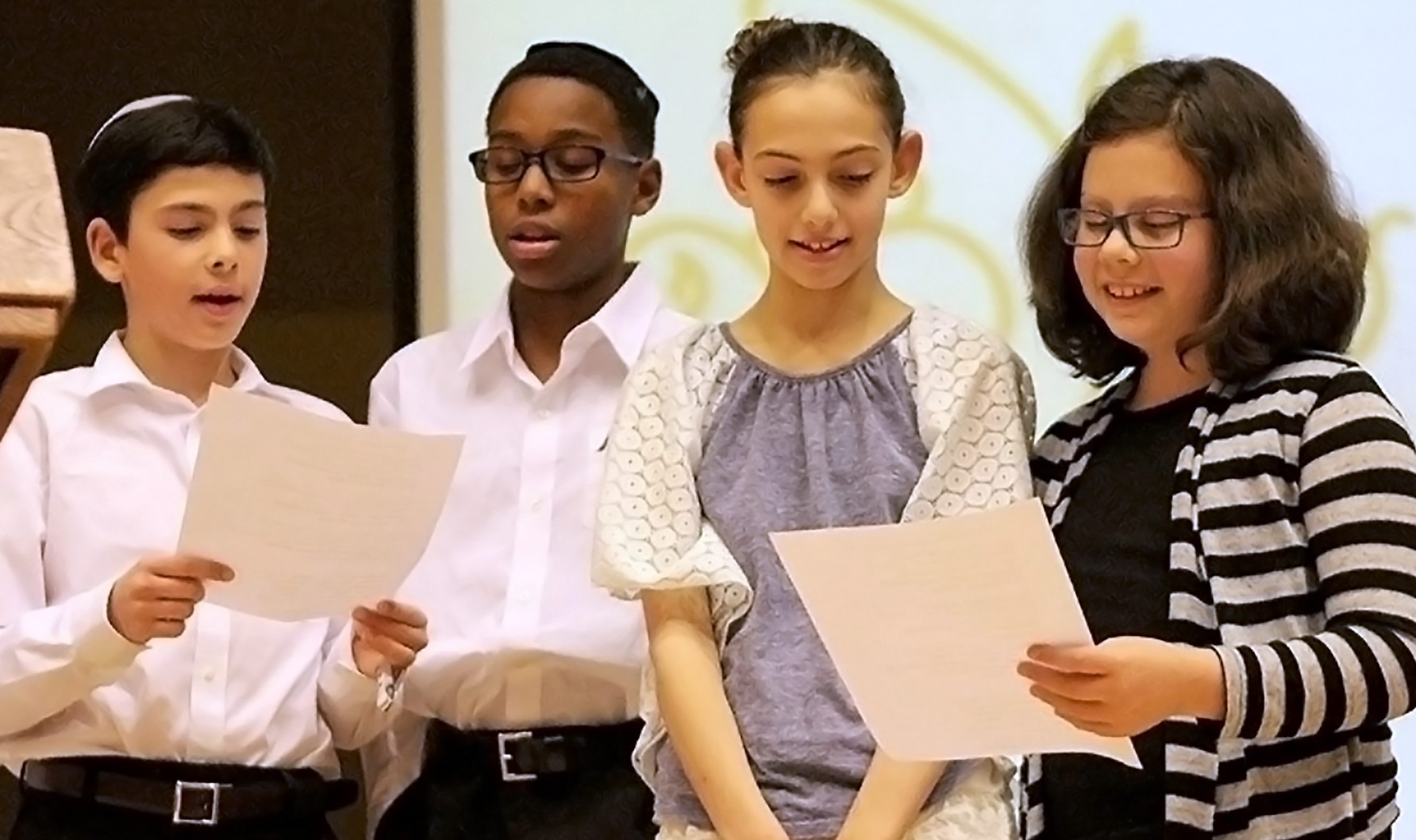
12/4 EVENT | Ladino Day 2022: The Future of Ladino
Sunday, December 4, 2022, 10:00 am PST - 11:30 am PST
Watch the program now:
Scholars, writers, and language activists working to preserve and revitalize Ladino join UW’s Devin E. Naar, Isaac Alhadeff Professor of Sephardic Studies, in conversation regarding the future of the traditional language of Sephardi Jews.
On the tenth anniversary of Ladino Day, UW’s Sephardic Studies Program presents four experts from different generations, all working to revitalize Ladino (Judeo-Spanish), the traditional language of Sephardic Jews.
The program will feature, in conversation with Devin E. Naar, Isaac Alhadeff Professor of Sephardic Studies:
- Karen Gerson Şarhon — editor-in-chief of the Ladino language publication El Amaneser
- Nesi Altaras — editor of Avlaremoz, a Turkish-Jewish online magazine
- Rachel Amado Bortnick — founder of the Ladinokomunita online community
- Eliezer Papo – Ladino scholar featured in the documentary “The Last Sephardic Jew”
View the recording here.
About the speakers
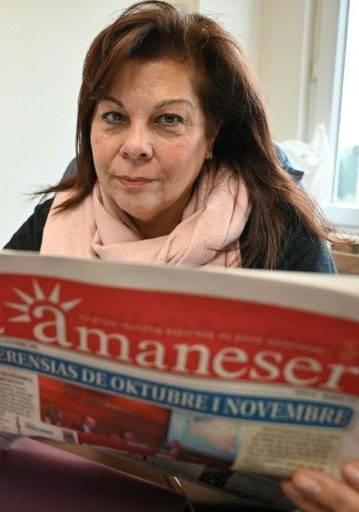 Born in Istanbul, Karen Gerson Şarhon leads all of the projects at the Ottoman-Turkish Sephardic Culture Research Center. In addition to founding that organization, she also earned the title of Chevalier des Arts et des Lettres de la République Française in 2011 for her contribution to the world culture and her efforts in the preservation of Judeo-Spanish. After earning a BA in English Philology, an MA in Social Psychology and an MA in Applied Linguistics, Karen wrote both her MA theses on the Judeo-Spanish language! Now, you can find her teaching Ladino on social media, proudly serving as editor-in-chief of el amaneser [the only monthly newspaper in the world entirely in Ladino] and of the Judeo-Spanish page(s) of the Şalom newspaper [the only newspaper of the Turkish Jewish community], and singing in the authentic Turkish Sephardic music group she founded: Los Pasharos Sefaradis.
Born in Istanbul, Karen Gerson Şarhon leads all of the projects at the Ottoman-Turkish Sephardic Culture Research Center. In addition to founding that organization, she also earned the title of Chevalier des Arts et des Lettres de la République Française in 2011 for her contribution to the world culture and her efforts in the preservation of Judeo-Spanish. After earning a BA in English Philology, an MA in Social Psychology and an MA in Applied Linguistics, Karen wrote both her MA theses on the Judeo-Spanish language! Now, you can find her teaching Ladino on social media, proudly serving as editor-in-chief of el amaneser [the only monthly newspaper in the world entirely in Ladino] and of the Judeo-Spanish page(s) of the Şalom newspaper [the only newspaper of the Turkish Jewish community], and singing in the authentic Turkish Sephardic music group she founded: Los Pasharos Sefaradis.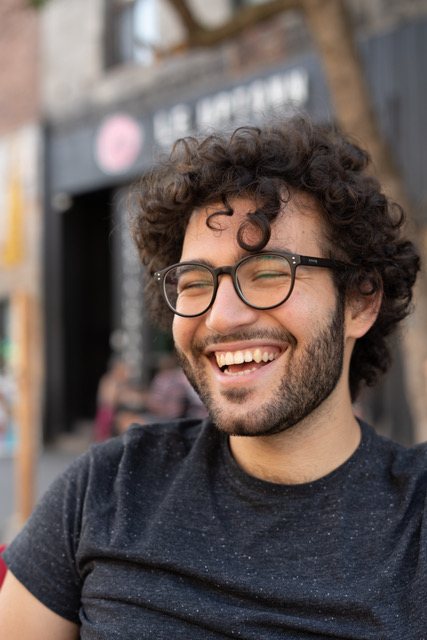 Nesi Altaras is an Istanbuli Jew and editor of Avlaremoz, a Jewish news platform in Turkish. He holds an MA in political science, and his writing in English, Turkish, and Ladino has been published in various outlets. Nesi lives in Montreal where he works as the Digital Engagement Officer for the Institute for Reasearch on Public Policy.
Nesi Altaras is an Istanbuli Jew and editor of Avlaremoz, a Jewish news platform in Turkish. He holds an MA in political science, and his writing in English, Turkish, and Ladino has been published in various outlets. Nesi lives in Montreal where he works as the Digital Engagement Officer for the Institute for Reasearch on Public Policy.
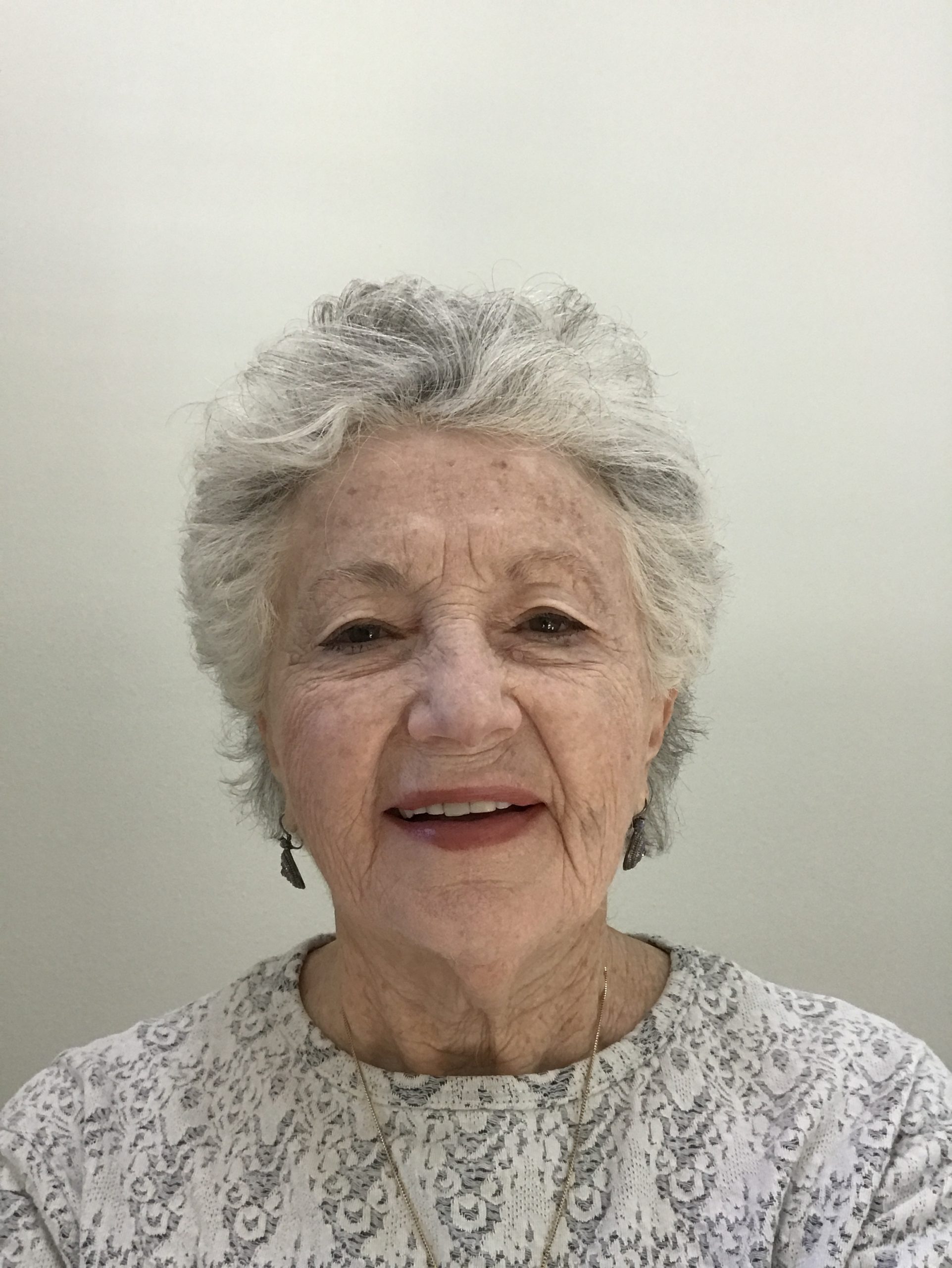 Born and raised in Izmir, Rachel Amado Bortnick came to the United States in 1958 on a scholarship to Lindenwood College (now University) in St. Charles, Missouri, from which she earned a B.A. in Chemistry. She and American-born architect Bernard Bortnick went back to Izmir to get married and subsequently lived in Holland, in Israel, and several cities in the United States before settling in Dallas, Texas in 1988. Rachel is now retired after teaching ESOL (English for Speakers of Other Languages) for 35 years. She has always actively promoted the preservation of Judeo-Spanish language and culture; in 1985, while living in the San Francisco Bay area, she founded and led the Ladino-speaking club Los Amigos Sefaradis, and subsequently she was featured in the documentary film, Trees Cry for Rain: a Sephardic Journey. In 1999 she founded Ladinokomunita, the Ladino correspondence group on the Internet, which now has over 1500 members worldwide.
Born and raised in Izmir, Rachel Amado Bortnick came to the United States in 1958 on a scholarship to Lindenwood College (now University) in St. Charles, Missouri, from which she earned a B.A. in Chemistry. She and American-born architect Bernard Bortnick went back to Izmir to get married and subsequently lived in Holland, in Israel, and several cities in the United States before settling in Dallas, Texas in 1988. Rachel is now retired after teaching ESOL (English for Speakers of Other Languages) for 35 years. She has always actively promoted the preservation of Judeo-Spanish language and culture; in 1985, while living in the San Francisco Bay area, she founded and led the Ladino-speaking club Los Amigos Sefaradis, and subsequently she was featured in the documentary film, Trees Cry for Rain: a Sephardic Journey. In 1999 she founded Ladinokomunita, the Ladino correspondence group on the Internet, which now has over 1500 members worldwide.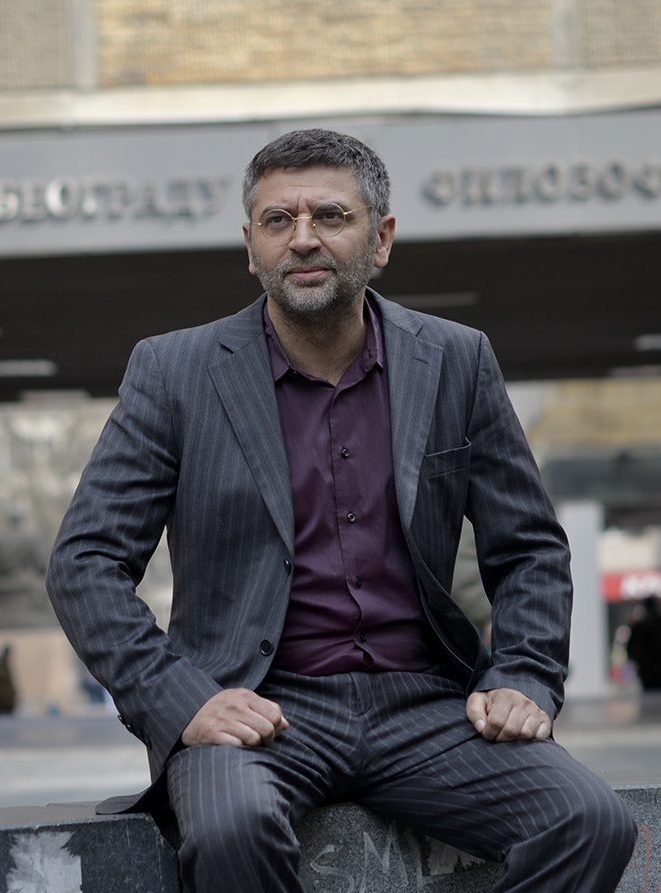 Born and raised in Sarajevo, Eliezer Papo‘s research centers on Hebrew/Jewish oral literatures, with specialization in the field of Sephardic literatures (oral and written, rabbinic and secular). His book And Thou Shall Jest with Your Son: Judeo-Spanish Parodies on the Passover Haggadah, received the prestigious Ben-Tzvi award. Dr. Papo published around 50 articles, in 10 different languages, about different aspects of Sephardic culture and literature, as well as four works of fiction — one in Ladino and three in Serbo-Croatian.
Born and raised in Sarajevo, Eliezer Papo‘s research centers on Hebrew/Jewish oral literatures, with specialization in the field of Sephardic literatures (oral and written, rabbinic and secular). His book And Thou Shall Jest with Your Son: Judeo-Spanish Parodies on the Passover Haggadah, received the prestigious Ben-Tzvi award. Dr. Papo published around 50 articles, in 10 different languages, about different aspects of Sephardic culture and literature, as well as four works of fiction — one in Ladino and three in Serbo-Croatian.
About the facilitator
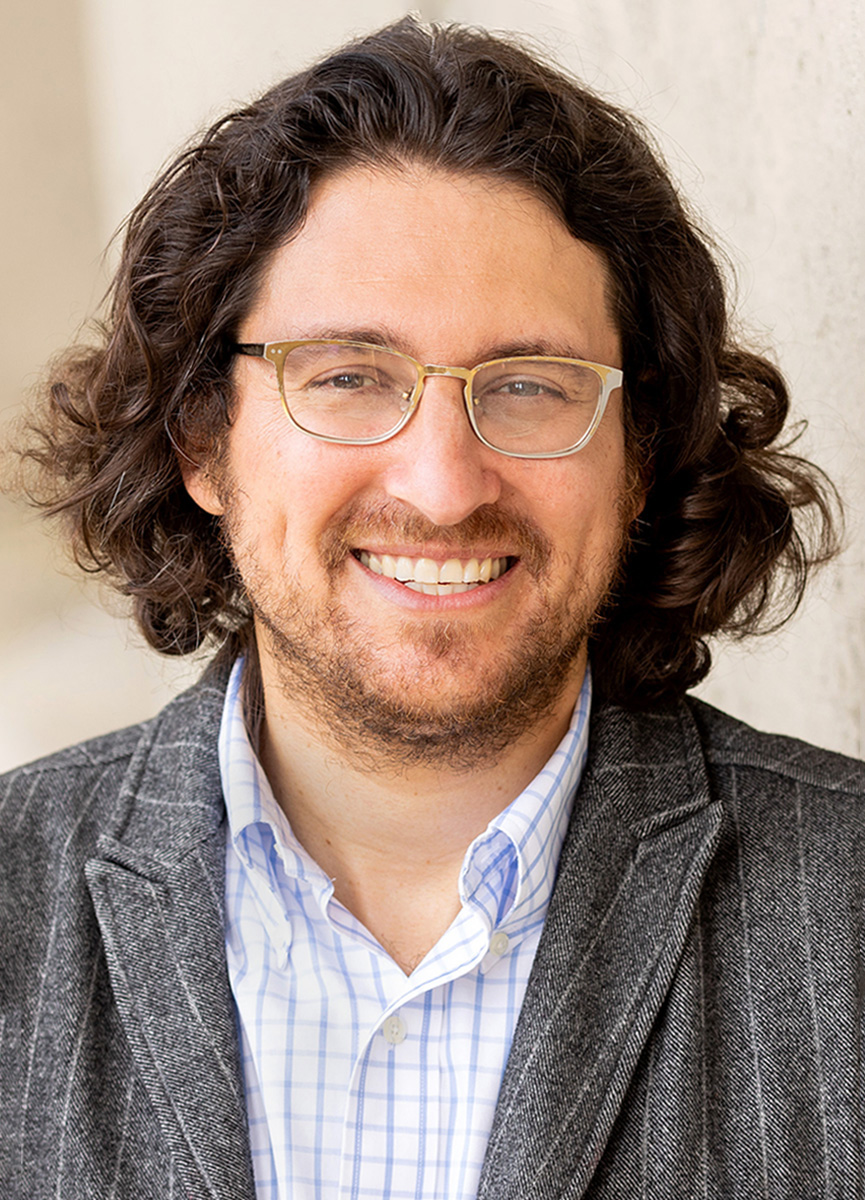 Devin E. Naar is the Isaac Alhadeff Professor in Sephardic Studies, Chair of the Sephardic Studies Program, Associate Professor of History, and faculty at the Stroum Center for Jewish Studies in the Jackson School of International Studies at the University of Washington. As chair, Naar has spearheaded a project to collect, preserve and disseminate the rich Sephardic and Ladino historical, literary and cultural heritage. After serving as a Fulbright fellow to Greece, his first book, Jewish Salonica: Between the Ottoman Empire and Modern Greece, was published by Stanford University Press in 2016. The book won the 2016 National Jewish Book Award in the category of Research Based on Archival Material and was named a finalist in Sephardic Culture. It also won the 2017 Edmund Keeley Prize for best book in Modern Greek Studies awarded by the Modern Greek Studies Association. As a fellow in the Society of Scholars at the Simpson Center for the Humanities at the University of Washington in 2013-2014, Dr. Naar began his second book project, Reimagining the Sephardic Diaspora. He conducts research in Judeo-Spanish, Greek, Hebrew and French.
Devin E. Naar is the Isaac Alhadeff Professor in Sephardic Studies, Chair of the Sephardic Studies Program, Associate Professor of History, and faculty at the Stroum Center for Jewish Studies in the Jackson School of International Studies at the University of Washington. As chair, Naar has spearheaded a project to collect, preserve and disseminate the rich Sephardic and Ladino historical, literary and cultural heritage. After serving as a Fulbright fellow to Greece, his first book, Jewish Salonica: Between the Ottoman Empire and Modern Greece, was published by Stanford University Press in 2016. The book won the 2016 National Jewish Book Award in the category of Research Based on Archival Material and was named a finalist in Sephardic Culture. It also won the 2017 Edmund Keeley Prize for best book in Modern Greek Studies awarded by the Modern Greek Studies Association. As a fellow in the Society of Scholars at the Simpson Center for the Humanities at the University of Washington in 2013-2014, Dr. Naar began his second book project, Reimagining the Sephardic Diaspora. He conducts research in Judeo-Spanish, Greek, Hebrew and French.
Supported by the Lucie Benveniste Kavesh Endowed Fund for Sephardic Studies
Cosponsored by the Departments of History, Linguistics, Middle Eastern Languages and Cultures, and Spanish & Portuguese Studies at the University of Washington, as well as Congregation Ezra Bessaroth, the Seattle Sephardic Network, Sephardic Bikur Holim Congregation, Sephardic Heritage International (SHIN) DC, the Sephardic Jewish Brotherhood of America, and the Turkish American Cultural Association of Washington (TACAWA).
The University of Washington is committed to providing access and accommodation in its services, programs, and activities. To make a request connected to a disability or health condition contact Grace Dy at (206) 543-0138 or jewishst@uw.edu at least 10 days before the event.
